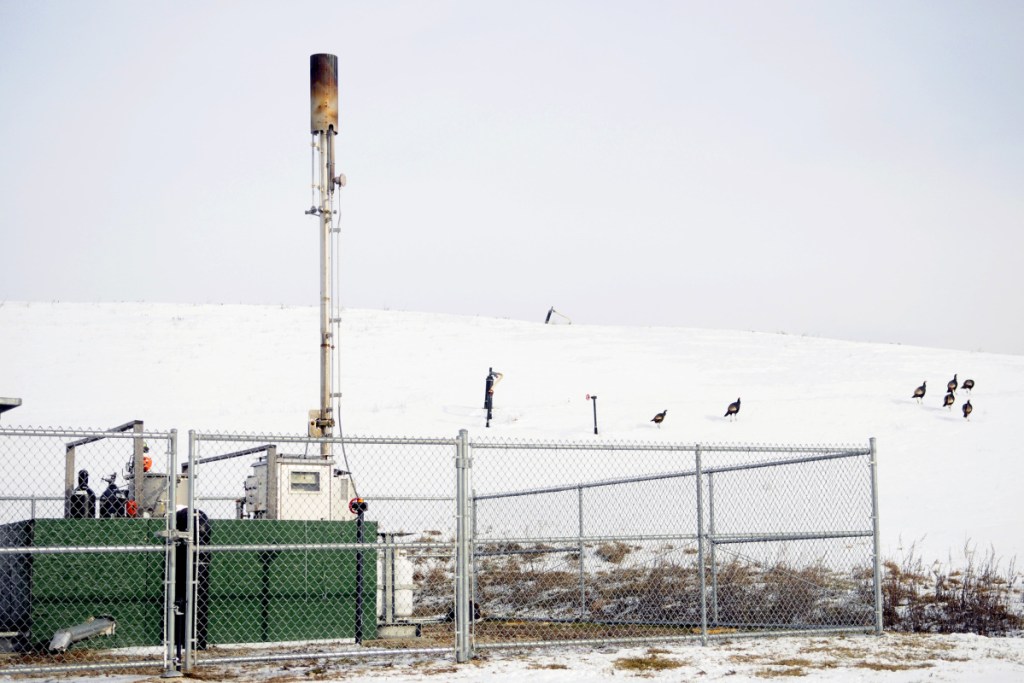AUGUSTA — City councilors on Thursday evening approved spending $3 million to build a system to use methane gas generated by decomposing garbage at Hatch Hill landfill to produce electricity and reduce the city’s electric bills.
Councilors voted unanimously for the project, which Public Works Director Lesley Jones said is unique for such a small landfill and will have environmental benefits, including an improvement in air quality and reduction in odors coming from the landfill.
“It’s a huge project on the environmental side,” Jones told city councilors.
While councilors previously had expressed support for the idea and agreed to fund projects related to it, Thursday’s vote was the first to authorize funding for construction of the power-generating site at the landfill, which is used by residents of several municipalities in the area.
The $3 million project would be financed by money generated at Hatch Hill.
Ralph St. Pierre, finance director and assistant city manager, said the project will pay for itself in 11 years with the savings it is expected to generate.
While the landfill is projected to be full, and possibly close, in about 15 years, it is expected to keep producing gas for at least 17 years, so the proposed new power-generating facility that would be built at Hatch Hill could result in the city saving money on its electricity bills once the cost of the project is recovered.
Hatch Hill already has a system that collects methane gas at the landfill to prevent it from escaping into and harming the environment. It is burned off by a flare, though Jones said not all gas is captured by the system, so some vents into the air.
Jones said, in response to questions from At-large Councilor Corey Wilson, the project could help reduce odors coming from the landfill.
Wilson said he drove by the landfill Thursday and it smelled awful.
Jones said that when the project is complete, it will draw more methane into the system, some of which might otherwise escape from the landfill. She said the additional wells to help capture more methane already are being built. She also said a future project will include putting a plastic cap over the landfill.
“We’ll be drawing more gas, and the next step after that is to put a cap on,” Jones said. “Then the gas wells will be more effective. I think that will help a lot.”
The proposed new system would use the gas generated at the landfill to produce electricity, for which the city would be compensated by Central Maine Power Co. with a credit toward electricity used at city facilities. The city plans to use that credit to offset the electric bills for the nine city buildings that use the most electricity. Those are City Center, Augusta Civic Center, Cony High School, Capital Area Technical Center, two of the city’s four elementary schools, the police station, Lithgow Public Library and Buker Community Center.
St. Pierre said the project is expected to pay for itself in 11 years and generate savings for the city whether controversial proposed new state “net metering” rules recommended by the state Public Utilities Commission are put in place or not.
The Pine Tree Landfill, in Hampden, owned by Casella Waste Systems, installed a system to convert trash to energy in 2008.
Officials of Woodard & Curran, an engineering firm working on the project for the city, said in a memo to the city that the project, including electrical generation equipment, a new, 1,400 square-foot building to house the equipment and other operations, and the extension of a gas line from the landfill collection system to the generators, could go out to bid in March and be operational by December.
The cost of the project, initially expected to be about $2 million, now is expected to be about $3 million. The size of the generation system also has increased since the idea first was hatched, from a 350-kilowatt generation system to a 550-kilowatt system. And revenue from the project is also higher than was estimated previously, in 2016, by about 40 percent — in part because the city now proposes to collect methane gas from a newer section of the landfill, where a new methane collection system would be installed.
St. Pierre said the facility will generate about 4.2 million kilowatt hours of electricity, which he said would be enough to power about 600 homes, if it were used for that purpose.
The state Department of Environmental Protection approved an air quality license for the project in February. The Augusta Planning Board held a public hearing and approved the project Feb. 13, with a condition of approval requiring noise levels to be checked quarterly to make sure noise from the generators does not exceed the limits of the city’s noise ordinance.
Keith Edwards — 621-5647
Send questions/comments to the editors.




Success. Please wait for the page to reload. If the page does not reload within 5 seconds, please refresh the page.
Enter your email and password to access comments.
Hi, to comment on stories you must . This profile is in addition to your subscription and website login.
Already have a commenting profile? .
Invalid username/password.
Please check your email to confirm and complete your registration.
Only subscribers are eligible to post comments. Please subscribe or login first for digital access. Here’s why.
Use the form below to reset your password. When you've submitted your account email, we will send an email with a reset code.